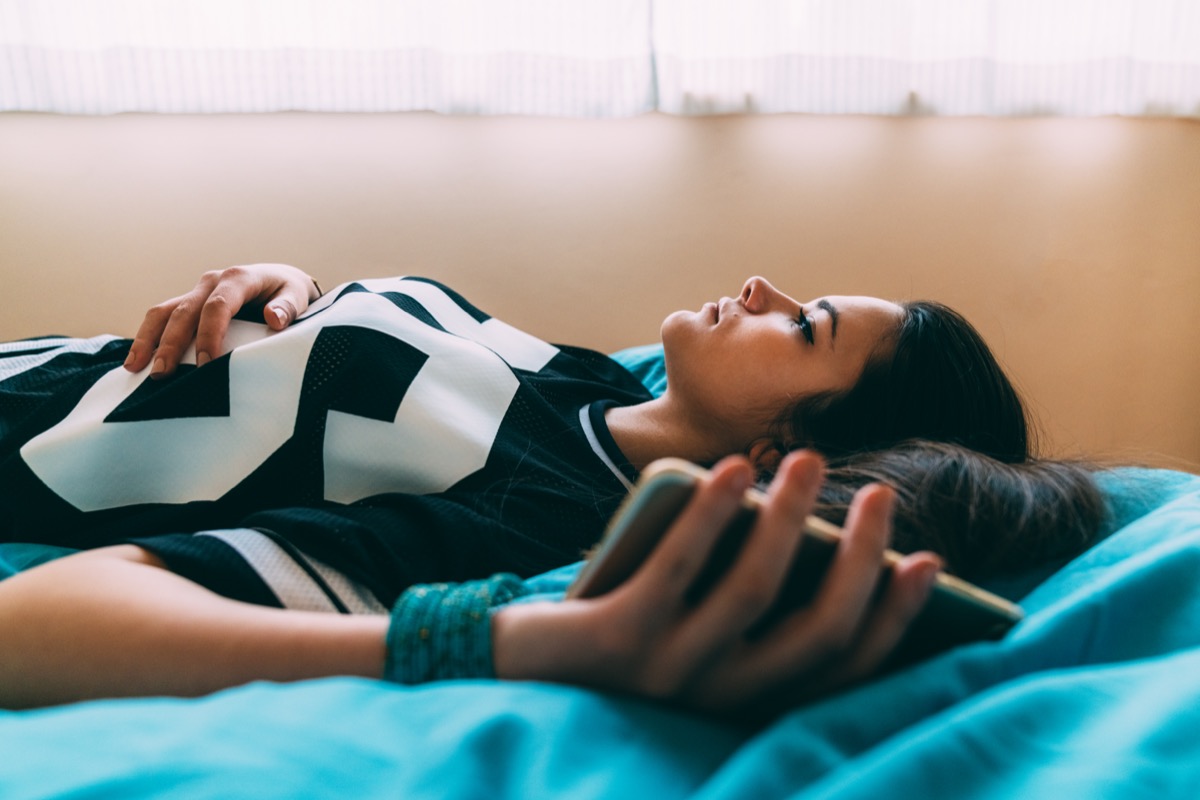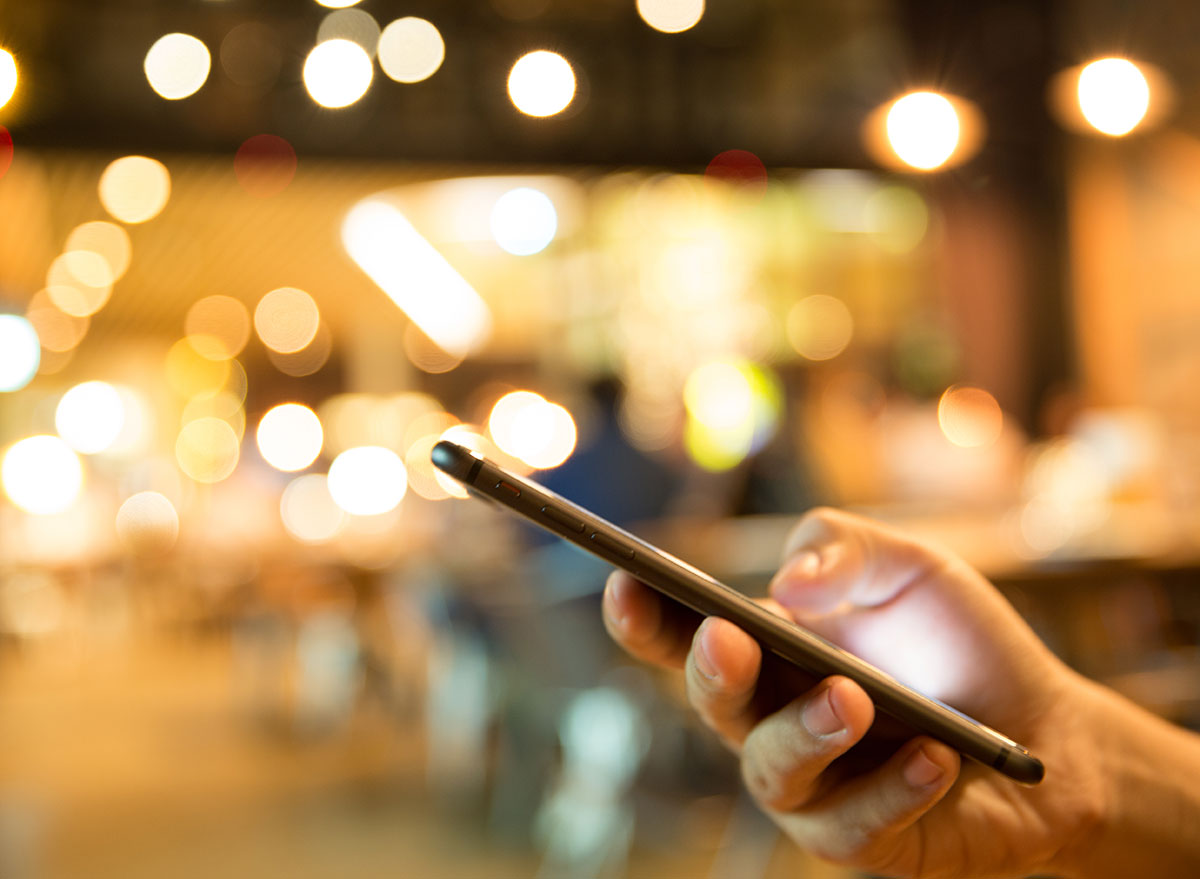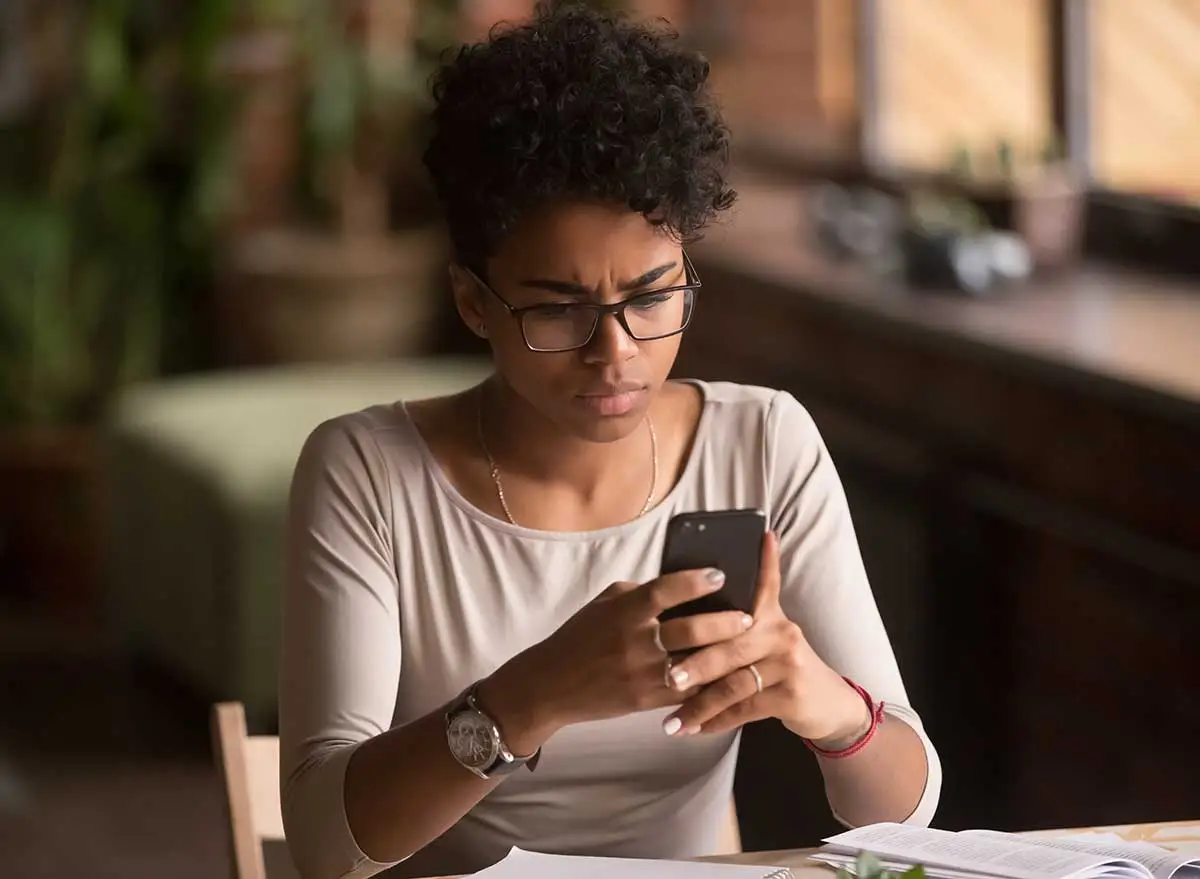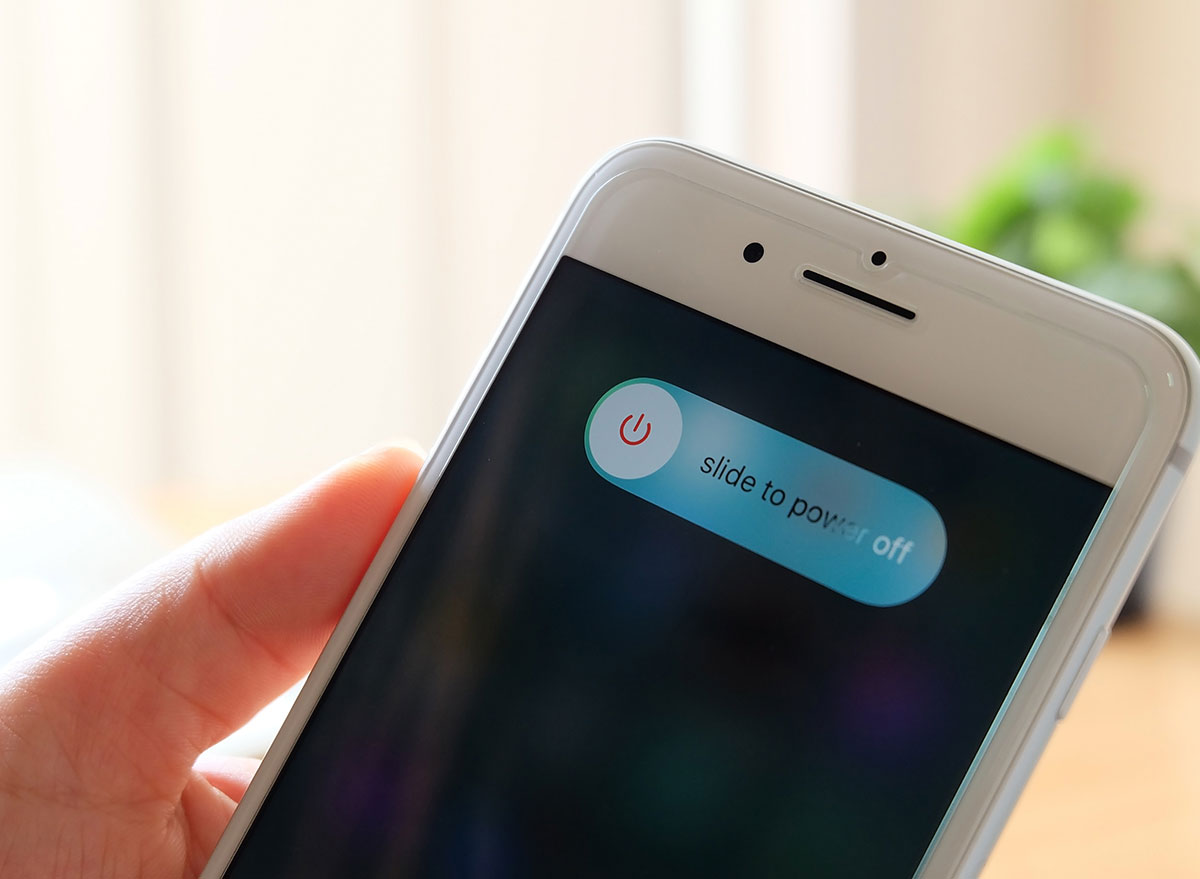One Major Side Effect of Staring at Your Phone Too Much, Says New Study

The term “smartphone addiction,” like “sugar addiction,” may not be a medically recognized condition, but that hasn’t stopped scientists from aggressively studying the effects of smartphone use on those who are overly attached to their devices—most notably young adults and children. So far, the results aren’t pretty. A study of five- to eight-year-olds published last year in the Journal of Clinical Sleep Medicine found that “excessive smartphone use was related to shorter total sleep time in children,” and “use of a smartphone was also associated with significant reductions in the quality of sleep in younger children.”
According to an all-new, peer-reviewed study of more than 1,000 college-age students published in the journal Frontiers in Psychiatry, 40% of all of the respondents polled were found to be “addicted” to their phones—and nearly 70% of those phone addicts suffered from poor sleep quality.
To figure out how many of the students were addicted to their phones, the researchers, from King’s College in London, had all of the study participants complete the Smartphone Addiction Scale—Short Version (SAS-SV), a 10-item questionnaire that evolved from the Smartphone Addiction Scale, which has been the international scientific community’s standard measure for gauging smartphone addiction in young people for many years. They also had the students complete an adapted version of the Pittsburgh Sleep Quality Score Index, which gauges sleep quality. Using statistical analysis, the researchers were able to gauge just how prevalent smartphone addiction is, and how deeply it’s impacting their sleep.
The researchers found that the younger the participant, the more likely they were to have an addiction. “Smartphone addiction was more prevalent among younger participants,” says the study. “This may reflect increased willingness among younger generations to adopt newer uses for smartphones (e.g., gaming, social media), which may confer greater risk of addiction. This could also related to younger participants potentially having more time for such endeavors.”
According to sleep scientists, this is no small matter—and the link between smartphone use and poor sleep applies to people of every age and gender. As expert have explained in alarming terms, we’re quietly experiencing a global sleep deprivation epidemic. Instead of cigarettes harming our health, it’s our handheld devices, whose short-wavelength lights are actually resetting our biological clocks and pushing back our bedtimes every day. The result is terrible sleep on an enormous level.
The study published in Frontiers in Psychiatry notes that those who used their phones later in the evening and night were especially at risk of smartphone addiction. “Later time of use was also significantly associated with smartphone addiction, with use after 1 a.m. conferring a 3-fold increased risk,” concludes the study. “This association may be indicative of impaired control and use despite harm, which are a characteristic of a behavioral addiction. Smartphone ownership has previously been linked with more electronic media use in the night and later bedtimes in a survey of adolescents.”
If you fear that you may suffer from smartphone addiction, here are some methods you can start using immediately to get it under control, according to Larry Rosen, Ph.D., a professor emeritus of psychology at California State University, Dominguez Hills, and the author of The Distracted Mind: Ancient Brains in a High-Tech World and iDisorder. And for more ways to ensure you’re getting proper sleep, make sure you’re fully aware of the All-Time Worst Foods for Your Sleep.
Cut down on group email chains—and avoid “Reply All.”

“Group emails, while helpful for team collaboration, are an increasingly problematic workplace distraction,” writes Rosen in an article for the Harvard Business Review. “After the second or third ‘reply all’—when most messages could be directed to just one or two people, rather than everyone—these chains to start to feel oppressive, adding extraneous content to our already overflowing inboxes.” Try to keep your email communications tight and focused, with only the relevant people who matter, to cut down on the pings coming to your pocket in your off-hours.
Only respond to email during reasonable working hours.

“Today, typical workdays can stretch to nine hours in the office and far into the night, only to start again the moment we wake,” explains Rosen in the same article. “When colleagues email, text, or message us in some other way, no matter the time, an immediate response is, in many cases, the unspoken expectation. My suggested middle ground—used in several multinational companies including Volkswagen and Deutsche Telekom—is a 7 am -to-7 pm policy: messages can, of course, be sent at any hour, but no one is required to respond earlier than 7 am or later than 7 pm.”
RELATED: 13 Ways Your Phone Is Ruining Your Health
Set no-phone zones around family areas.

This is more difficult during the era of a pandemic, but entirely doable: “Designate areas where, in an effort to facilitate better, more meaningful conversation with friends and family, personal devices simply aren’t allowed. Examples include the dinner table, the rec or TV room, in the car, or in restaurants.”
Yes, power down earlier.

As Czeisler noted, the blue light from your phones plays nasty tricks on your body’s sleep apparatus. Rosen’s solution: “Don’t bring your devices to bed!”
According to Hanreet Walia, MD, of the Cleveland Clinic, you should put away your phone at least one hour before bed. If you can’t swing a full hour, 30 minutes will do.
For more on the connection between your sleep and your health, read up on What Happens to Your Body When You Don’t Get Enough Sleep, Say Doctors.